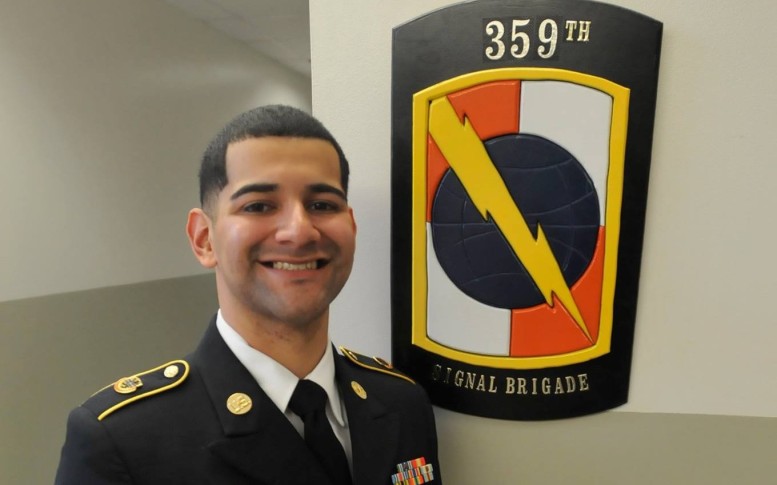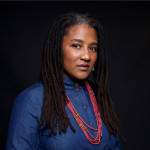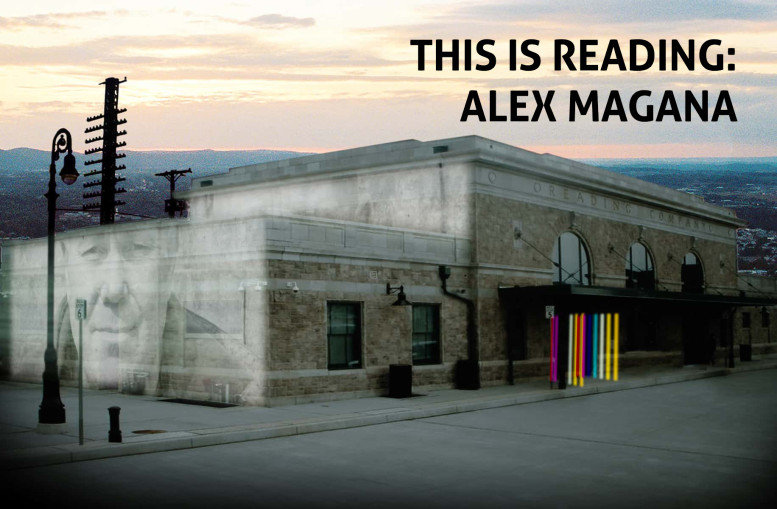This Friday, Lynn Nottage and her husband Tony Gerber’s Market Road Films will occupy Franklin Street Railroad Station in Downtown Reading with This Is Reading, a dynamic, site-specific multimedia installation blending live performance and visual media, re-animating the long-vacant building. Using as its foundation the challenges, and triumphs of people living in and around Reading, PA., This is Reading will weave their individual stories into one cohesive and celebratory compelling tale of the city.
Over the past four weeks, Extended Play has published an ongoing series of interviews Lynn and her team did with Reading residents. This is the final interview, and it’s with Lynn and Reading resident Alex Magana. It’s especially poignant as the installation opens this week, for Alex focuses on how Reading can be a city for all its residents, which is a theme Lynn and Tony continually emphasize in the creation of This is Reading.
This is Reading runs July 14-16, 21-23, and 28-30, 2017
To reserve your free ticket, visit here.
Follow on Facebook and Twitter
Join the conversation with #ThisIsReadingPA and #ThisIsOurTown
LYNN NOTTAGE: Where’d your family come from?
ALEX MAGANA: So originally, actually, I’m first generation born in the U.S. My parents immigrated from Mexico and I was the first child of my mom to be born here in the states.
LYNN: And why did your parents come to Reading?
ALEX: I asked my parents the same thing and…with me traveling around the United States and telling people I’m from Pennsylvania, they’re like, “But you’re Mexican! There’s Mexicans in Pennsylvania!?” I’m like, my city is primarily Hispanic. What my mom tells me is she had her brothers here living in Reading, you know, in the United States, prior to her even coming. And so when they were looking for work, there had already been a small community of Mexican immigrants in Reading. And that allowed her to settle into Reading…and these small communities of immigrants slowly grew and grew and grew. So it allowed for everyone to feel almost home, even though they were in a completely different country. To this day, you don’t really need to be able to speak English to live in Reading, and I think there’s nothing wrong with that. Absolutely. Like, that’s a great thing. And especially as an educator, when I go into the classroom I definitely want to incorporate everyone’s culture. Because there’s so much material out there and if we don’t hold our culture near and dear to us then we’re…we’re losing ourselves. But you don’t lose, you don’t lose it here in Reading. I can tell you even with me student teaching just now, I experienced the students being just as prideful of their heritage as when I was going through school. So that hasn’t changed. And I don’t see it changing in Reading.

LYNN: And what did your parents do?
ALEX: It’s a company called Giorgio’s. And they harvest mushrooms inside buildings. It’s labor intensive and they’re always up really early and some days they have to work thirteen, fourteen hour days. And that’s just the way it is.
LYNN: They still do it?
ALEX: Yes. And that’s why those jobs are still available. Because not everyone wants to do ’em, especially your second, third generation immigrants.
LYNN: So, when you graduate what are you going to do to celebrate? Where are you going?
ALEX: To celebrate, I think I’m just going to spend it first and foremost with my family because it’s been a long time. I’ve been in college too long and that’s because of the military. But, what I wanna do is just let them know that I appreciate all their assistance, all their sacrifices that they had to make in order for me to go to college. Because I know I didn’t go to college on my own. I’m not graduating just based on my hard work and no one else’s. I had a huge group of support from my family. I really like that my last student teaching experience was in the city of Reading because I want the kids to see that I am no different from them. That I grew up in the same environment, with the same resources, with the same family dynamics, and yet I was able to go to college and so I want to somehow bridge that and let the kids know, like, “Hey we can all do it. We can all succeed. We don’t have to just be…be nothing. We can be anything.” And we really can. I mean, I did it.
LYNN: And what’s also lovely is that there’s so few men that go into the classroom.
ALEX: So I get this all the time. Especially with being a “special education” major, I’ve been the only guy in a lot of my classes. I’ve been the only minority in a lot of my classes. So to bring those two elements into the classroom, I’m excited.
LYNN: That’s gonna be tremendous.
ALEX: Yes.
LYNN: There’ll be lives that are transformed simply because you walked into the room.
ALEX: Exactly. Yes, so I get this very, very often. A lot of my students will ask me, “Mr. Magana, why are you so dressed up? Why do you always look this nice? Do student teachers really have to dress this nice?” Well, it’s because I tell them, like, I wanna be representative of my community. I want people to see that a brown face like mine can do it and that we’re out there and we take this serious.
LYNN: I’ve been talking to people over the course of five years, and particularly some of the older white folks would say, “Things were great in Reading until the Latinos came here.” Can you explain to them why this is your city as well?
ALEX: This is my…our…this is our city. It’s not just about, “It used to be ours and now it’s theirs.” It’s everyone’s. Whether you’re white, black, brown. Whatever you are. Because listen, we live in a global community. And if we are to change and be impactful in any way to future generations and to our society as a whole, we gotta lose that mindset that it’s us versus them. Or that there’s someone bringing everyone else down. We should all be willing to help each other out. And be willing to accept that, yes, we are different but we also have a lot to offer. And through those differences, we’re able to make connections.
Author
-

Lynn Nottage is a Pulitzer Prize-winning playwright and a screenwriter. Her plays have been produced widely in the United States and throughout the world. "Sweat" (Pulitzer Prize, Obie Award, Susan Smith Blackburn Prize) moved to Broadway after a sold-out run at The Public Theater. It premiered and was commissioned by Oregon Shakespeare Festival American Revolutions History Cycle/Arena Stage, "By The Way, Meet Vera Stark" (Lilly Award, Drama Desk Nomination), "Ruined" (Pulitzer Prize, Obie, Lucille Lortel, New York Drama Critics’ Circle, Audelco, Drama Desk, and Outer Critics Circle Award), "Intimate Apparel" (American Theatre Critics and New York Drama Critics’ Circle Awards for Best Play), "Fabulation, or The Re-Education of Undine" (OBIE Award), "Crumbs from the Table of Joy," "Las Meninas," "Mud," "River," "Stone," "Por’knockers and POOF!." In addition, she is working with composer Ricky Ian Gordon on adapting her play "Intimate Apparel" into an opera (commissioned by The Met/LCT). She is also developing "This is Reading" a performance installation based on two years of interviews set to open at the Franklin Street, Reading Railroad Station in Reading, PA in July 2017. She is currently an artist-in-residence at the Park Avenue Armory. She is the co-founder of the production company, Market Road Films, whose most recent projects include "The Notorious Mr. Bout" directed by Tony Gerber and "Maxim Pozdorovkin" (Premiere/Sundance 2014), "First to Fall" directed by Rachel Beth Anderson (Premiere/ IDFA, 2013) and "Remote Control: (Premiere/Busan 2013- New Currents Award) Over the years, she has developed original projects for HBO, Sidney Kimmel Entertainment, Showtime, This is That and Harpo. She is writer/producer on the Netflix series "She's Gotta Have It" directed by Spike Lee. Nottage is the recipient of a PEN/Laura Pels Master Playwright Award, Literature Award from The Academy of Arts and Letters, Columbia University Provost Grant, Doris Duke Artist Award, The Joyce Foundation Commission Project & Grant, Madge Evans-Sidney Kingsley Award, MacArthur "Genius Grant" Fellowship, Steinberg "Mimi" Distinguished Playwright Award, Nelson A. Rockefeller Award for Creativity, The Dramatists Guild Hull-Warriner Award, the inaugural Horton Foote Prize,Helen Hayes Award, the Lee Reynolds Award, and the Jewish World Watch iWitness Award. Her other honors include the National Black Theatre Fest's August Wilson Playwriting Award, a Guggenheim Grant, Lucille Lortel Fellowship and Visiting Research Fellowship at Princeton University. She is a graduate of Brown University and the Yale School of Drama. She is also an Associate Professor in the Theatre Department at Columbia School of the Arts. Nottage is a board member for BRIC Arts Media Bklyn, Donor Direct Action, Dramatist Play Service, Second Stage and the Dramatists Guild. She recently completed a three-year term as an Artist Trustee on the Board of the Sundance Institute. She is member of the The Dramatists Guild and WGAE.
View all posts









